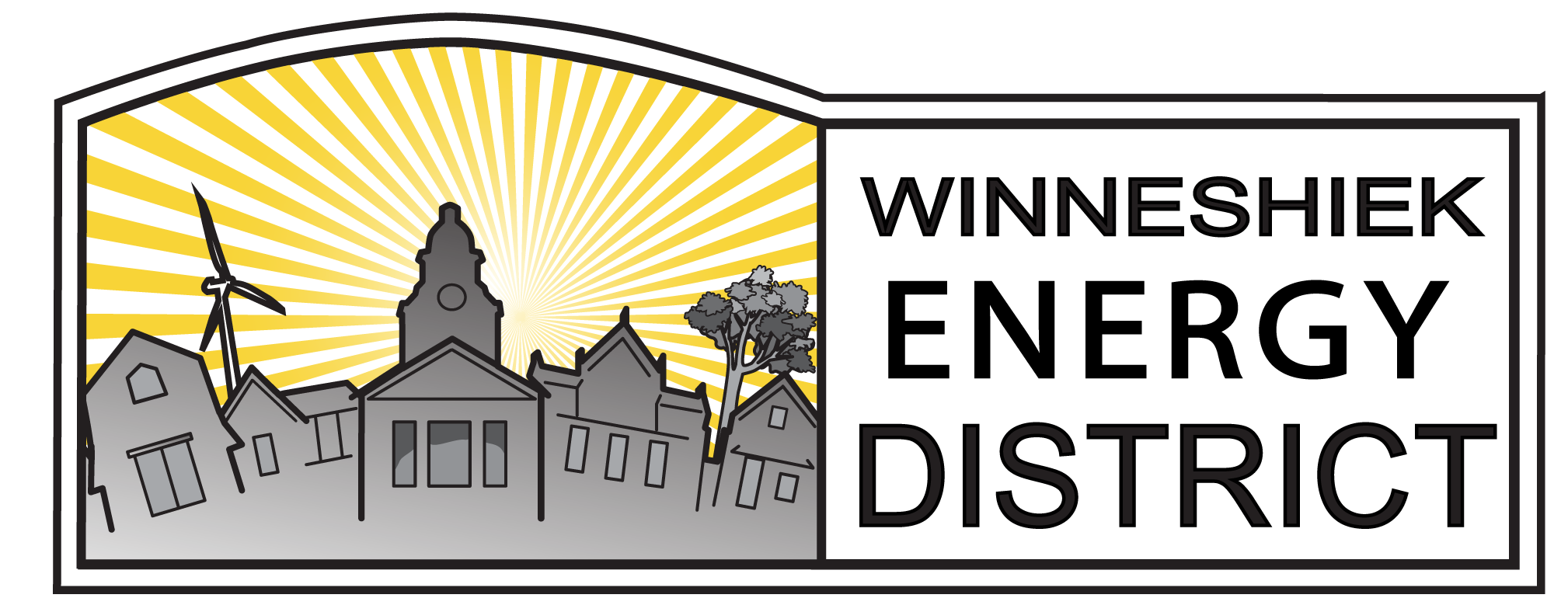By Andy Johnson, Executive Director There is growing interest in what’s happening at the FERC (Federal Energy Regulatory Commission) around net metering for customer-owned solar. We introduced the topic last issue, and provided a resource page on our web site. Here we’ll dive a little deeper. In April, a shadow group called the New England Ratepayer’s Association (NERA) submitted a petition to the FERC for a “declaratory order”. The NERA
by Jessica Hegdahl, Audit Coordinator There’s a lot of uncertainty surrounding COVID-19 and when it will be safe for the Winneshiek Energy District to resume in-home energy assessments. So we got creative! We are excited to share that Decorah’s Green Iowa AmeriCorps team is pioneering a no-contact home energy reduction program called Bright Box. Our full home energy assessment includes a combination of combustion appliance safety testing, insulation analysis, a
By Joel Zook, Energy Planner, and Joleen Jansen, Program Coordinator Clayton County Energy District The City of West Union was recently awarded an Iowa Economic Development Authority/Iowa Energy Center grant to study the current public geothermal loop system and hopefully advance this community geothermal system from a pilot project to a source of clean energy prosperity for West Union. Winneshiek Energy District is leading this project and is excited to
By Briana Burke, Green Iowa Americorps Member Every year, the American food system uses about the same amount of energy as the entire country of France- that’s a lot of energy! Although our Green Iowa Americorps team has taken a COVID hiatus from home energy efficiency, their work helping Food Hub and local farmers still relates back to energy issues in our community. Food Hub is a part of the
By Jim Martin-Schramm The director of Luther College’s Center for Sustainable Communities, Jim Martin-Schramm, presented “Solar to Storage” during the Winneshiek Energy District’s Online Lunch Webinar on Tuesday, May 19. Jim spoke about Luther’s latest renewable energy project, which will involve the installation of another large solar array and energy storage system in the field near the intersection of US-52 and Pole Line Road. This will be the third solar
The Decorah City Council is currently being pressured by Alliant into signing a long-term electric franchise contract. The issue at stake is, who will own and reap the prosperity benefits from the clean energy future – our community, or Alliant shareholders? The Council has passed – and Alliant has rejected – a draft franchise contract that would meet all of Alliant’s terms except for the binding contract length. Council wants
Bri Burke, Green Iowa Member In the midst of this pandemic and all of the changes it has brought, one thing is still the same; the Green Iowa Americorps team is hard at work serving our community. Thankfully, there’s a lot of other great people serving our community that we are partnering with to accomplish much needed work. The team has been working with the Food Pantry, the Food Hub,
Joel Zook, Energy Planner New Funding Available for Farms and Small Businesses Luther College’s Center for Sustainable Communities has received USDA funding to provide energy audits through the Winneshiek Energy District (WED) to small businesses and agricultural producers in NE Iowa and SE Minnesota. The grant funding provided by USDA’s Rural Energy for America Program (REAP) significantly reduces the cost of a high-quality energy audit. “This is a great opportunity
Andy Johnson, Executive Director Your Energy District has been among many Iowa voices urging a ban on all utility disconnections during the current public health crisis. On March 27th, the Iowa Utilities Board ordered: All electric and natural gas utilities, including municipal, cooperative, and investor-owned, and all investor-owned water utilities are restricted from disconnecting any customers until the public health emergency is lifted by written statement of Governor Kim Reynolds.
Andy Johnson, Executive Director Now is a great time to install solar for most farm, home, and business owners in Iowa. After many years of policy battles at the Utilities Board and Legislature, Iowa’s solar advocacy community – including your Energy Districts – has won a major victory. SF 583 has been signed by the Governor, and makes net metering the law of the land for the foreseeable future. Here,
